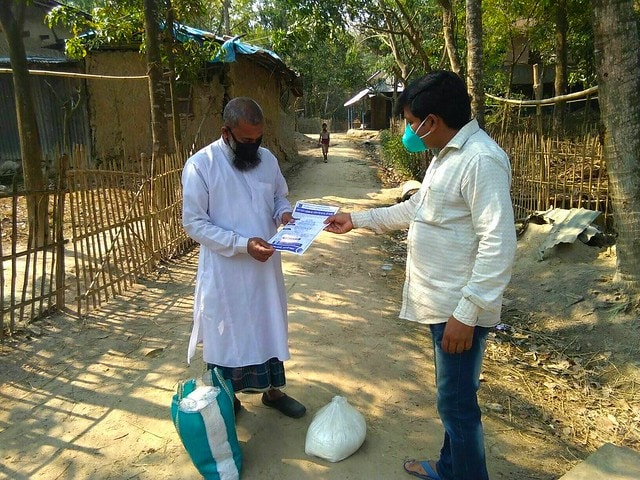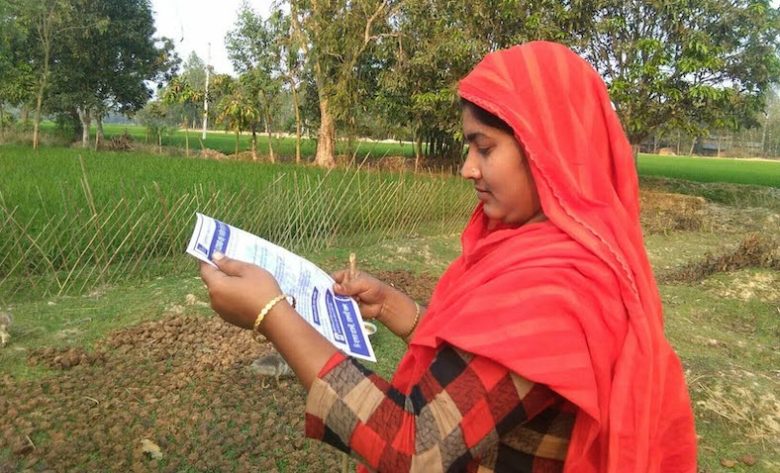Watch a special COVID-19 response video message from our global communities: There is No Lockdown on Hope The COVID-19 pandemic is impacting life in every part of our world and we are seeing, first hand, how critical is to leverage ingenuity and strength at the local level. With our already existing networks of local leaders across 13 Program Countries, we have an unparalleled organization-wide capacity to respond to the needs of this rapidly developing situation. Our nimble response is tailored to achieve three main goals:
-
spread messaging from credible sources like WHO and local public health infectious disease authorities among our networks of community leaders;
-
empower our community partners with information and encouragement about the role they play as community leaders and elected leaders in stopping the spread of the virus; and
-
leverage our role as civil society thought leaders to raise awareness and ensure government is accountable to local communities.
In Africa
In Africa, staff and volunteers are facilitating community support through activated volunteer networks, radio programs, community address systems, phone, WhatsApp, and virtual meetings and presentations.
Our epicenter health centers are making access to services available to everyone without being charged a fee. These health facilities are providing the most needed health support to the rural communities where we work, including prevention messages, containment and treatment. Each health facility also has community health mobilizers/workers who work hand-in-hand with our health animators to disseminate information in the community. In this time of social distance, ministries of health are distributing posters and campaign messages through all their health system networks (including most of our epicenter health centers), and these posters and information are able to reach our rural communities. Having these health systems already in place at our epicenters brings these efforts to the most unreached person in our rural communities.
Each program area also has dedicated WASH (water and sanitation) volunteers, whose main role is to promote health and hygiene practices in their communities. The significance of the work they do is now much more evident and was intensified in the past immediate weeks. In Benin, for example, 70 communities have installed 1,200+ “Tippy Taps” across our communities (local hand washing stations). And in Ghana, we are using public address systems to inform communities about the measures they should be taking to prevent the spread of the virus.
In South Asia
Needed in partnership with medical interventions are social interventions. A driving component of our COVID response is empowering community partners with information and encouragement about the role they play as community leaders and elected leaders in stopping the spread of the virus. In India, working groups are spreading awareness and equipping 8000+ elected women leaders with information to help their constituents access government support programs and dispel local myths in order to clarifying proper prevention methods. These messages are being leveraged by our partner organizations and major funders and their reach is significant. In Bangladesh, civil society leaders are coordinating to advocate for widespread, immediate government action, circulating social media videos and articles nation-wide. Additionally, Union leaders are sewing face masks, making hand sanitizer and spreading awareness about what people should do if they are showing symptoms.
In Latin America
In Mexico, regional coordinators are translating official information issued in Spanish into local languages and recording and distributing short videos to reach community members who cannot read. We will continue to share updates here as we have them. In the meantime, please follow us on Facebook for real-time updates from Hunger Project offices around the world. Read our original COVID-19 response statement.
See photos from The Hunger Project’s COVID-19 response around the world: 
To learn more about the novel coronavirus COVID-19, we direct you to the World Health Organization website. We particularly recommend reading the myth busters page to counter the spread of misinformation.

